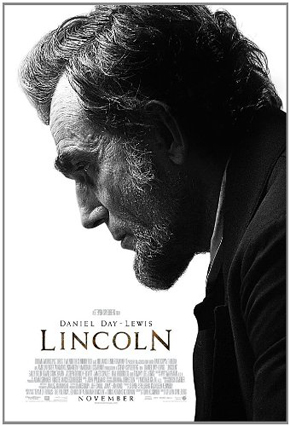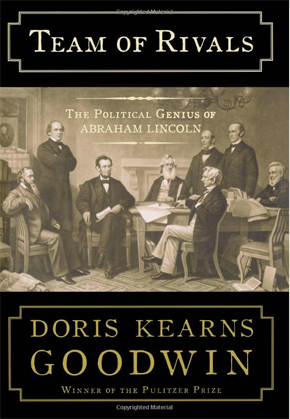 Even Steven Spielberg can get a rejection letter. It seems that Daniel Day-Lewis—who plays Lincoln in Spielberg’s presidential Academy Award Dominated movie, originally did not want to play Abraham Lincoln. Spielberg didn’t let the rejection letter go to waste, he stowed it away for safekeeping and the letter showed up at the awards-podium as reading material last week.
Even Steven Spielberg can get a rejection letter. It seems that Daniel Day-Lewis—who plays Lincoln in Spielberg’s presidential Academy Award Dominated movie, originally did not want to play Abraham Lincoln. Spielberg didn’t let the rejection letter go to waste, he stowed it away for safekeeping and the letter showed up at the awards-podium as reading material last week.
Julie Miller reporter for Vanity Fair wrote, “Before presenting Day-Lewis with the New York Film Critics Circle award for best actor, Speilberg read aloud the Oscar winner’s thoughtful brush-off.”
Here is Steven’s Rejection Letter:
Dear Steven,
It was a real pleasure just to sit and talk with you. I listened very carefully to what you had to say about this compelling history, and I’ve since read the script and found it in all the detail in which it describe these monumental events and in the compassionate portraits of all the principal characters, both powerful and moving. I can’t account for how at any given moment I feel the need to explore life as opposed to another, but I do know that I can only do this work if I feel almost as if there is no choice; that a subject coincides inexplicably with a very personal need and a very specific moment in time. In this case, as fascinated as I was by Abe, it was the fascination of a grateful spectator who longed to see a story told, rather than that of a participant. That’s how I feel now in spite of myself, and though I can’t be sure that this won’t change, I couldn’t dream of encouraging you to keep it open on a mere possibility. I do hope this makes sense Steven, I’m glad you’re making the film, I wish you the strength for it, and I send both my very best wishes and my sincere gratitude to you for having considered me.
Daniel Day-Lewis
 What can we learn from this? Well, Spielberg didn’t give up. After receiving the letter, he recruited Tony Kushner to pen a new screenplay from Doris Kearns Goodwin’s biography of Lincoln, Team of Rivals—one that would earn Day-Lewis’s approval. Apparently he did, because Lincoln is positioned to run away with the Oscars in February.
What can we learn from this? Well, Spielberg didn’t give up. After receiving the letter, he recruited Tony Kushner to pen a new screenplay from Doris Kearns Goodwin’s biography of Lincoln, Team of Rivals—one that would earn Day-Lewis’s approval. Apparently he did, because Lincoln is positioned to run away with the Oscars in February.
So the next time you get a rejection letter, keep this story in mind and revise your manuscript. Revision does improve our work and sometimes we just need someone to pull our best out of us.
Talk tomorrow,
Kathy
I’m printing this one out, for sure, Kathy! Maybe even frame it! lol
What strikes me the most is that Stephen, especially considering his success, has never let his ego become inflated in a way that has made him automatically dismiss the opinions of others. He took Daniel’s thoughtful comments to heart and re-examined the screenplay. Both their attitudes are worthy of admiration and they were ultimately able to acheive excellence because of it 🙂
I haven’t watched award shows in years because I’m just really sick of competition, generally, but I’ve heard “Lincoln” is an outstanding film and I plan to see it when it’s available on DVD 🙂
Thanks for posting this, Kathy!
LikeLike
By: :Donna Marie on January 14, 2013
at 12:25 am
Donna,
Had to change the antibiotic, because I was getting sicker on the second one he gave me. I feel a little better after the switch.
Kathy
LikeLike
By: Kathy Temean on January 15, 2013
at 2:00 am
To quote George McFly in Back to the Future: “I just can’t take that kind of rejection!”
Actually, I can. After countless rejections, two agents and two near publications that fell through, I have started to self-publish online and so far it has been very successful.
At this point I am simply trying to get my name and works noticed, and the reviews for both Uncle Flynn and George goes to Mars are good, which is encouraging. By all means have a read – both are downloadable for free, or you can get print copies from Lulu.com.
LikeLike
By: simondillon on January 14, 2013
at 10:13 am
This is an inspiring post and a great lesson for those of us who think rejection is the end. In many cases it is the beginning…of a new path and new story. Thanks for sharing.
LikeLike
By: darlenebeckjacobson on January 14, 2013
at 11:33 am
Darlene,
How is your path going? I think you may have e-mailed me about going to lunch, but I am not sure. I could have hallucinated it. I’ve been sick in bed, since December 16th. How anyone could sleep so much is beyond me. I must have set a record. On my third antibiotic. To tired and too weak to even read in bed. I’m going to have to start my New Year Resolutions in February.
Kathy
LikeLike
By: Kathy Temean on January 15, 2013
at 1:48 am
Really not liking the “third antibiotic” thing 😦
LikeLike
By: :Donna Marie on January 15, 2013
at 1:55 am
So true, Kathy.
Chris Vogler told another story about the Lincoln movie, and I hope I’ll get the story correct (we fiction writers love to fill in details, you know!). Sally Field was originally considered to play Mrs. Lincoln, but then, as the movie took much longer to make than they had planned, they said she was too old for the part. She didn’t accept that, asked to at least audition, and when they saw how she played the part with Day-Lewis, she was back in the role.
That doesn’t mean we should send manuscripts back to someone who just rejected us (without a strong reason), as Kathy would tell you, but it’s always good to take another look. Celebrate those rejections! They mean you’re doing what you’ve dreamed of doing, and your rejected manuscripts are one step closer to finding the right home. It’s not about bucking up. It’s about realizing rejections are a gift.
Thanks so much, Kathy…
Great post!
LikeLike
By: Deb Lund on January 14, 2013
at 2:27 pm
Deb,
Here, here! Totally agree. Nice story, thanks for sharing.
Kathy
LikeLike
By: Kathy Temean on January 14, 2013
at 6:45 pm
found this via Knitting With Pencils…. Thanks for writing!
LikeLike
By: jennigreenmiller on January 14, 2013
at 9:39 pm
Jenni,
Welcome! Hope you stop back.
Kathy
LikeLike
By: Kathy Temean on January 15, 2013
at 1:43 am
A lesson learned indeed. Rejection comes in many forms, this one seemingly one of the most polite ones I’ve ever seen but they all contain a morsel of teaching and I think that’s what is important to always value.
Thanks for writing and reading,
Sarah Butland author of Arm Farm, Sending You Sammy and Brain Tales – Volume One
LikeLike
By: sarahbutland on January 21, 2013
at 8:16 pm
…and I think it also makes it very evident how important it is to have a DIFFERENT skilled eye read our work, because we’re too close to it and know things in a way an outside reader doesn’t. They see it with fresh eyes, going in “blindly” so can see things we can’t. It doesn’t matter how talented or skilled a person is—that “outsiders” perspective is necessary and sometimes weighty.
LikeLike
By: :Donna Marie on January 21, 2013
at 11:54 pm